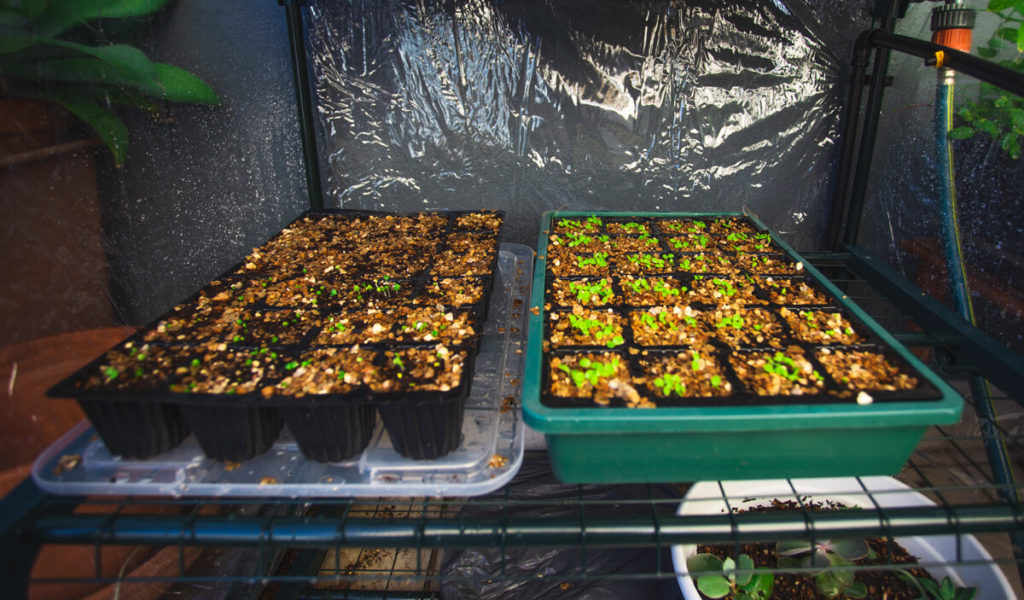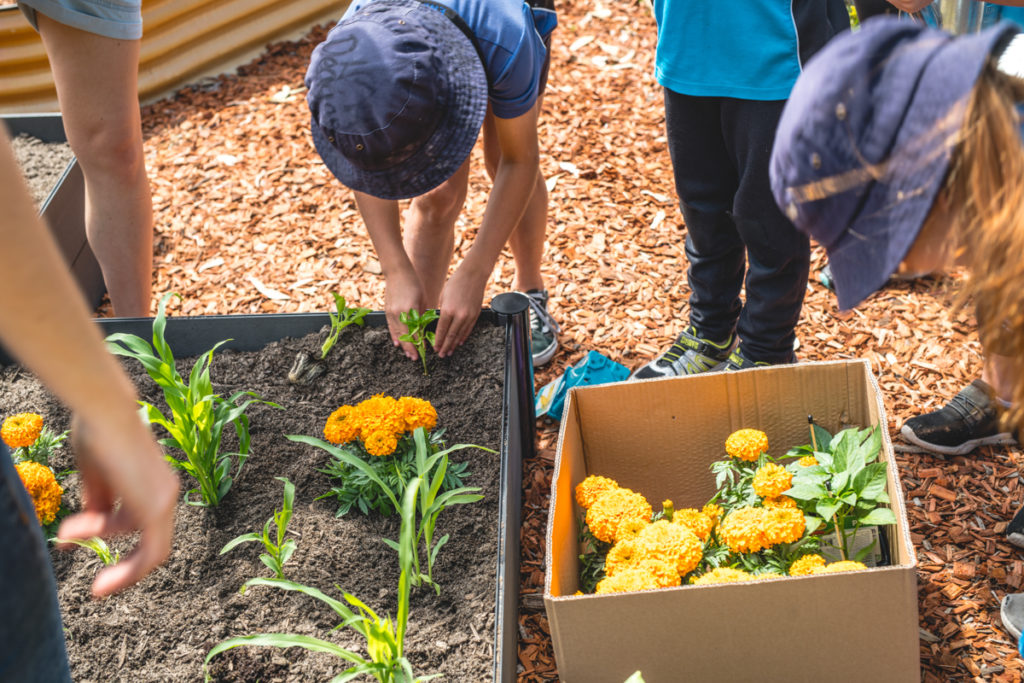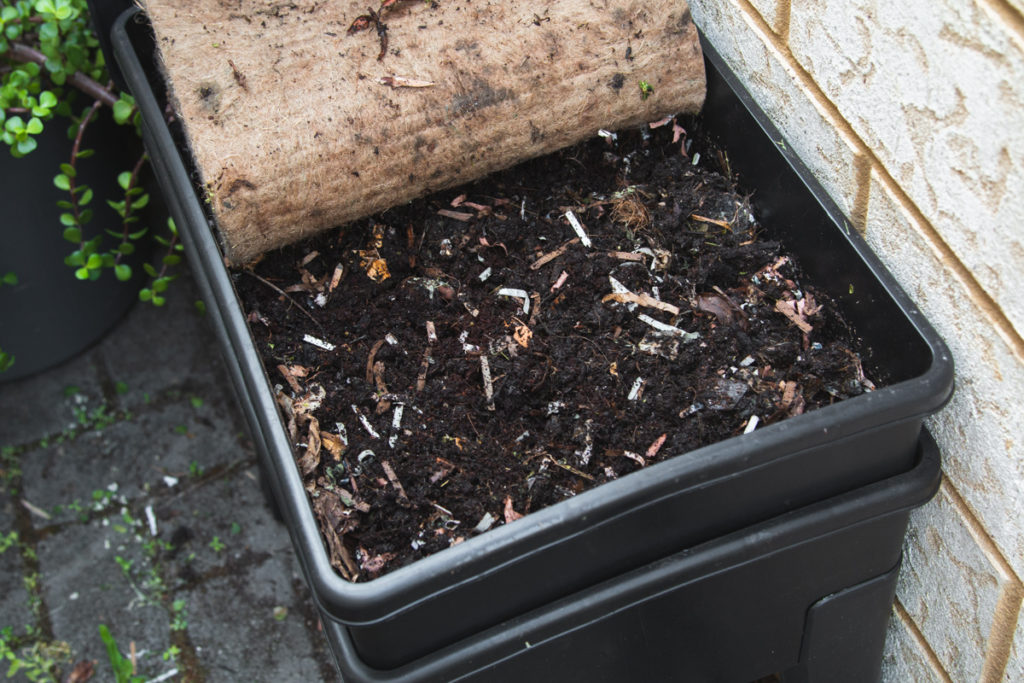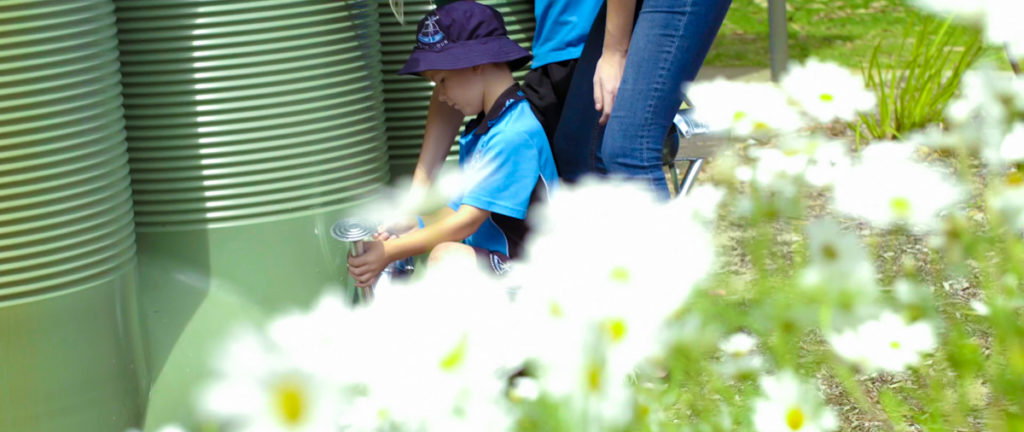Having looked after gardens for more than 50 years, we understand the pivotal role the humble backyard plays in children’s lives.
We are proud advocates of smart gardening initiatives within Australian primary schools and communities.
School gardens are becoming increasingly popular for teaching children about sustainability while providing a multitude of educational, physical and health benefits. There are a variety of grants available to schools to help establish communal gardens, ranging from Government grants to local business and community donations.
Seed raising in a Greenhouse
Growing vegetables in a Raised Garden Bed
Worm farming
Maintaining a vertical herb garden
Water saving with rain tanks
Seed Raising in a Greenhouse
Growing from seed has many benefits and is a fantastic hands-on opportunity to build a child’s conceptual understanding of food sources and origins. Watching food grow in a Greenhouse and tasting it at leisure is a more exciting way of educating children about nutrition, as well as the environmental implications of growing organically or transporting food long distances. Check out our guide to Propagating from Seed in a Greenhouse.

Growing Vegetables in a Raised Garden Bed
Children love experimenting and are naturally enthusiastic and curious which is why school gardens are so valuable for achieving a variety of early learning outcomes. Raised Garden Beds are ideal for teaching children how to plant, grow and sustain a range of fruits, vegetables, herbs and even flowers.
Maintaining a communal garden is no small feat and requires a whole school approach to manage the upkeep. To share the workload of watering, planting and harvesting, Endeavour Schools adapted gardening related projects to suit children from every year group. Some gardening related lessons suitable for varying age groups include:
- Recycling water with a rainwater tank
- Automating irrigation with a Tap Timer to regulate water usage and prevent unnecessary waste
- Composting and worm farming to maintain healthy crops
- Harvesting vegetables from the garden to use in a cooking class
Check out our guide on Spring Vegetable Garden Planting for some project inspiration!


Worm Farming
Worm farms are perfect for breaking down organic matter, like fruit and vegetable scraps, into nutrient rich compost castings that can be used to fertilise school gardens. Modern worm farms are generally made up of lightweight plastic with a series of stackable plastic trays. They can process up to 15kg of fruit and vegetable scraps per month and are ideal for small, off-site kindergartens.
Other worm farming benefits include:
- Prevent organic matter from ending up in landfill
- Teaches children the importance of recycling and reducing overall food waste/plastic packaging
For a complete guide to Worm Farming at School check out the Western Australian Waste Authority’s FAQ sheet. We also recommend checking out Tumbleweed’s range of worm farming products.
Maintaining a Vertical Herb Garden
Vertical GreenWalls are a great solution for urban growing conditions and promote a multitude of environmental and health benefits. Vertical gardening projects are ideal for teaching children how to grow, harvest, prepare and share seasonal fresh food in a format easily replicated at home.
For Endeavour Primary students, we secured six Vertical Planting Kit brackets (600mm × 360mm) to the fence at an appropriate height for the children using ‘S’ hooks. Attaching the panels at a lower height made it easy for the kids to connect their herb pots to the wall and ensure the individual drippers were in the best position to water the plants. By hooking the panels up to a BTX1 Tap Timer, we were able to automate the watering schedule to keep the GreenWall alive over the school holidays.
Check out our 10 Steps to Creating a Living GreenWall.

Water Saving with a Rain Tank
A few years ago, Endeavour Schools were approved for a grant from the Government to install a rainwater tank. Over the years this has helped maintain their communal garden whilst contributing to several financial, educational and environmental benefits for the whole community. The school rainwater tank has played an integral role in reducing the school’s water and energy costs, teaching the kids about water efficiency and fostered a culture built around the shared goal of creating a more sustainable future.
The rainwater tank was designed with a tap outlet, so the children can fill up their watering cans and water their garden beds with ease. A quick internet search will point you in the right direction of securing a rainwater grant or donation in your local catchment area.




 No products in the cart.
No products in the cart.